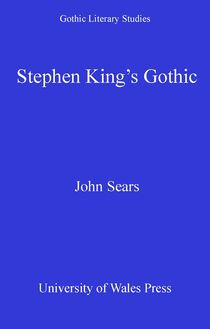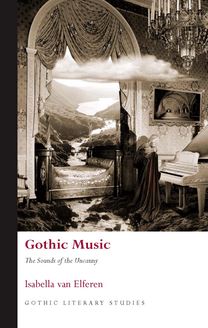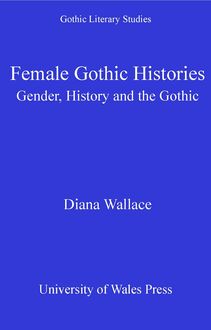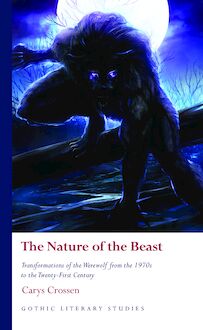-
 Univers
Univers
-
 Ebooks
Ebooks
-
 Livres audio
Livres audio
-
 Presse
Presse
-
 Podcasts
Podcasts
-
 BD
BD
-
 Documents
Documents
-
- Cours
- Révisions
- Ressources pédagogiques
- Sciences de l’éducation
- Manuels scolaires
- Langues
- Travaux de classe
- Annales de BEP
- Etudes supérieures
- Maternelle et primaire
- Fiches de lecture
- Orientation scolaire
- Méthodologie
- Corrigés de devoir
- Annales d’examens et concours
- Annales du bac
- Annales du brevet
- Rapports de stage
La lecture à portée de main
Découvre YouScribe en t'inscrivant gratuitement
Je m'inscrisWilkie Collins, Medicine and the Gothic , livre ebook
Découvre YouScribe en t'inscrivant gratuitement
Je m'inscrisEn savoir plus
En savoir plus

Description
Sujets
Informations
| Publié par | University of Wales Press |
| Date de parution | 01 septembre 2009 |
| Nombre de lectures | 0 |
| EAN13 | 9780708322826 |
| Langue | English |
| Poids de l'ouvrage | 1 Mo |
Informations légales : prix de location à la page 0,1074€. Cette information est donnée uniquement à titre indicatif conformément à la législation en vigueur.
Extrait
Wilkie Collins, Medicine
and the Gothic
LaurenceTalairach-Vielmas
University of Wales Press00 Prelims WilkieCollins 15_9_09:Layout 1 15/09/2009 14:13 Page i
WILKIE COLLINS, MEDICINE AND THE GOTHIC00 Prelims WilkieCollins 15_9_09:Layout 1 15/09/2009 14:13 Page ii
SERIES PREFACE
Gothic Literary Studies is dedicated to publishing groundbreaking
scholarship on Gothic in literature and film.The Gothic,which has
been subjected to a variety of critical and theoretical approaches,
is a form which plays an important role in our understanding of
literary,intellectual and cultural histories.The series seeks to promote
challenging and innovative approaches to Gothic which question
any aspect of the Gothic tradition or perceived critical orthodoxy.
Volumes in the series explore how issues such as gender,religion,
nation and sexuality have shaped our view of the Gothic tradition.
Both academically rigorous and informed by the latest developments
in critical theory,the series provides an important focus for scholastic
developments in Gothic studies,literary studies,cultural studies and
critical theory.The series will be of interest to students of all levels and
to scholars and teachers of the Gothic and literary and cultural histories.
SERIES EDITORS
Andrew Smith, University of Glamorgan
Benjamin F. Fisher, University of Mississippi
EDITORIAL BOARD
Kent Ljungquist,Worcester Polytechnic Institute Massachusetts
Richard Fusco, St Joseph’s University, Philadelphia
David Punter, University of Bristol
Chris Baldick, University of London
Angela Wright, University of Sheffield
Jerrold E. Hogle, University of Arizona00 Prelims WilkieCollins 15_9_09:Layout 1 15/09/2009 14:13 Page iii
Wilkie Collins, Medicine
and the Gothic
LaurenceTalairach-Vielmas
UNIVERSITY OF WALES PRESS
CARDIFF
200900 Prelims WilkieCollins 15_9_09:Layout 1 15/09/2009 14:13 Page iv
© Laurence Talairach-Vielmas, 2009
All rights reserved. No part of this book may be reproduced in any
material form (including photocopying or storing it in any medium by
electronic means and whether or not transiently or incidentally to some
other use of this publication) without the written permission of the
copyright owner except in accordance with the provisions of the Copyright,
Designs and Patents Act 1988 or under the terms of a licence issued by the
Copyright Licensing Agency Ltd, Saffron House, 6–10 Kirby Street,
London, EC1N 8TS. Applications for the copyright owner’s written
permission to reproduce any part of this publication should be addressed
to the University of Wales Press, 10 Columbus Walk, Brigantine Place,
Cardiff, CF10 4UP.
www.uwp.co.uk
British Library Cataloguing-in-Publication Data
A catalogue record for this book is available from the British Library.
ISBN 978-0-7083-2223-9
e-ISBN 978-0-7083-2282-6
The right of LaurenceTalairach-Vielmas to be identified as author of this
work has been asserted by her in accordance with sections 77,78 and 79 of
the Copyright, Designs and Patents Act 1988.
Printed by CPI Antony Rowe, Chippenham,Wiltshire00 Prelims WilkieCollins 15_9_09:Layout 1 15/09/2009 14:13 Page v
In loving memory of my grandfather, JeanTalairach
1911–200700 Prelims WilkieCollins 15_9_09:Layout 1 15/09/2009 14:13 Page vi00 Prelims WilkieCollins 15_9_09:Layout 1 15/09/2009 14:13 Page vii
.
CONTENTS
Acknowledgements ix
Introduction:‘A creepy sensation down the spine’ 1
1 ‘Sensation is [his] Frankenstein’: Monomaniac
Obsessions in Basil,‘Mad Monkton’ and
TheWoman inWhite 18
2 The Substance and the Shadow: Invisibility and
Immateriality in Armadale 53
3 ‘My grave is waiting for me there’: Physiological
Prisons in The Moonstone 73
4 Transformation, Epilepsy and LateVictorian
Anxieties in Poor Miss Finch 93
5 The Shadows of the Past: Digging Out Hidden
Memory in The Haunted Hotel 119
6 Mad Scientists: Jezebel’s Daughter and
Heart and Science 137
7 The Quest for Knowledge in ‘I Say No’ 158
8 Born To Kill: the Haunting Taint in The Legacy
of Cain 18100 Prelims WilkieCollins 15_9_09:Layout 1 15/09/2009 14:13 Page viii
Contents
Notes 203
Bibliography 231
Index 243
viii00 Prelims WilkieCollins 15_9_09:Layout 1 15/09/2009 14:13 Page ix
ACKNOWLEDGEMENTS
As a child I used to watch my grandfather put together polystyrene
pieces to fashion a giant brain designed to be exhibited at the Paris
Science Museum.As a brain surgeon and a specialist in the study of
epilepsy, he would also take me to his laboratory at Sainte Anne’s
Hospital where monkeys were kept in cages and experimented upon.
The cruelty I imagined was going on there fuelled my imagination
and prompted my interest in medical experimentation and surgery.
But as a medical student the sight of blood and corpses ready for
dissection quickly made me decide to choose literary studies instead.
Yet I soon obsessionally focused on representations of the medical
and anxieties related to medical figures, as if to conjure up the
moments I had spent by the side of my grandfather, observing him
trying to fathom the mysteries of the human brain and map out
the cortex or listening to his stories of surgical operations.
This work is certainly the fruit of my early fascination for the
medical world.It is also the fruit of over ten years of research onWilkie
Collins.The book was completed during a period of sabbatical leave
from the University of Toulouse (UTM) during the spring term of
2008,and I am very grateful to the University of Toulouse for making
this possible.I have also benefited from a SAES/AFEA grant during
the period of research.Though I have incurred debts to more people
than I can possibly name here, I am glad to have the opportunity to
acknowledge some of them individually.I am very grateful to Andy
Smith,who believed in this project from the start,and to the
anonymous reader whose comments improved my book.I have been lucky
to benefit from Graham Law’s advice and help on the sections on
Jezebel’s Daughter and Heart and Science,and I would also like to thank
Jenny BourneTaylor and Steve Farmer who offered comments when
I submitted a shorter version of chapter 6 for publication to The00 Prelims WilkieCollins 15_9_09:Layout 1 15/09/2009 14:13 Page x
Acknowledgements
Wilkie Collins Society Journal.I am indebted to Lillian Nayder,Vic Sage,
Mariaconcetta Constantini and Natalie Cole for their insight,advice
and bibliographical information which helped shape the manuscript.
I also wish to thank Mike Hollington whose buoyant enthusiasm for
research is always contagious and whose generosity and
encouragement I treasure.ToWendy Harding and Ellen Levy,who read parts of
the manuscript in its early stages,and Elizabeth Mullen who patiently
proofread the entire manuscript,many thanks.Finally,as always,my
deepest thanks go to my husband who provided loving support at
every stage of this project and has ever been understanding.
Earlier versions of chapters 2 and 5 appeared as book chapters in
the following publications:‘The shadow and the substance:
invisibility and immateriality inWilkie Collins’s Armadale’,in Mariaconcetta
Constantini (ed.),Armadale:Wilkie Collins and the DarkThreads of Life
(Rome:Aracne, 2009);‘Memory as a palimpsest inWilkie Collins’s
The Haunted Hotel (1879)’, in Darby Lewes (ed.), Double Visions:
Eighteenth and Nineteenth-Century Palimpsests (Lanham,Boulder,New
York,Toronto, Plymouth: Rowman & Littlefield and Lexington
Books,2008),pp.149–61.Chapter 6 originally appeared as a shorter
paper,‘Mad scientists and chemical ghosts:Wilkie Collins’s“materialist
supernaturalism”’,in The Wilkie Collins Society Journal 7 (2004),3–20.
Chapters 3,5 and 7 include portions of papers given at international
conferences:‘Spreading the germs of sensationalism:the diseased texts
ofVictorian literature’,ARPF (Association for Research in Popular
Fictions) conference,Infection and Contamination,Edge Hill College,
2002; ‘Venice and the shadows of the past: digging out hidden
memory in Wilkie Collins’s The Haunted Hotel (1879)’, Dickens,
Victorian Culture and Italy,Genoa,2007;‘Texts and images inWilkie
Collins’s “I Say No”(1884)’,International GothicAssociation,Gothic
N.E.W.S.,Aix-en-Provence,2007.An abridged version of chapter 1
was published in the proceedings of the conference Mountains in
the English-SpeakingWorld held inToulouse in 2007:‘“On the very
brink of a precipice”: landscapes of the mind in Wilkie Collins’s
Basil (1852)’, in Françoise Besson and Catherine Lanone (eds),
Anglophonia/Caliban 23 (2008), issue on ‘La Montagne entre image
et langage dans les territoires anglophones’, 183–90. I am grateful
to the editors of these books and journals for permission to use the
material here.
x01 Main Text WilkieCollins 15_9_09:Layout 1 15/09/2009 14:31 Page 1
Introduction:‘A creepy sensation
1down the spine’
History discloses how the mind passes from wonderment at the
2miraculous to the discernment of order, from sorcery to science.
Twenty-first century researchers digging out crumbling Victorian
medical essays may well give a start when they encounter a literary
review buried in a medical journal for the first time.But if today the
conflation of the medical and literary fields may seem surprising, it
was nonetheless common practice inVictorian England:while
scientific essays warning young female readers about the dangers of fiction
flourished in literary journals,doctors also offered their own point of
view on literature in medical gazettes.Medical science undoubtedly
struck the keynote.The advances in experimental physiology,which
aimed to analyse and measure the body’s activity,pointed to the body
as a source of mystery and wonder, frequently turning medical and
scientific figures into wizards using lancets or drugs of all sorts as magic
wands.
As a significant instance,the name of Henry Maudsley,the famous
Victorian alienist (as the early psychiatrists were called), probably
haunted theVictorians many years before his death. In the second
half of the nineteenth century, Maudsley was one of the most
influentialVictorian me
-
 Univers
Univers
-
 Ebooks
Ebooks
-
 Livres audio
Livres audio
-
 Presse
Presse
-
 Podcasts
Podcasts
-
 BD
BD
-
 Documents
Documents
-
Jeunesse
-
Littérature
-
Ressources professionnelles
-
Santé et bien-être
-
Savoirs
-
Education
-
Loisirs et hobbies
-
Art, musique et cinéma
-
Actualité et débat de société
-
Jeunesse
-
Littérature
-
Ressources professionnelles
-
Santé et bien-être
-
Savoirs
-
Education
-
Loisirs et hobbies
-
Art, musique et cinéma
-
Actualité et débat de société
-
Actualités
-
Lifestyle
-
Presse jeunesse
-
Presse professionnelle
-
Pratique
-
Presse sportive
-
Presse internationale
-
Culture & Médias
-
Action et Aventures
-
Science-fiction et Fantasy
-
Société
-
Jeunesse
-
Littérature
-
Ressources professionnelles
-
Santé et bien-être
-
Savoirs
-
Education
-
Loisirs et hobbies
-
Art, musique et cinéma
-
Actualité et débat de société
- Cours
- Révisions
- Ressources pédagogiques
- Sciences de l’éducation
- Manuels scolaires
- Langues
- Travaux de classe
- Annales de BEP
- Etudes supérieures
- Maternelle et primaire
- Fiches de lecture
- Orientation scolaire
- Méthodologie
- Corrigés de devoir
- Annales d’examens et concours
- Annales du bac
- Annales du brevet
- Rapports de stage




















